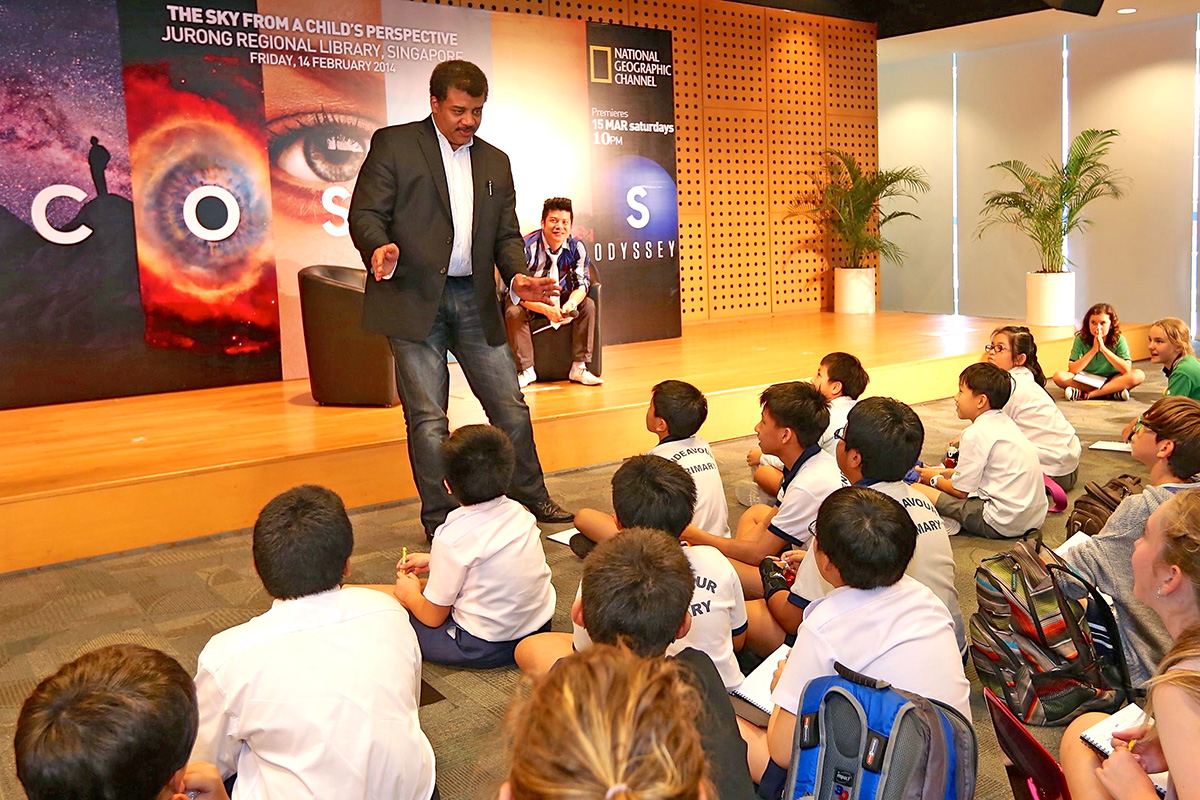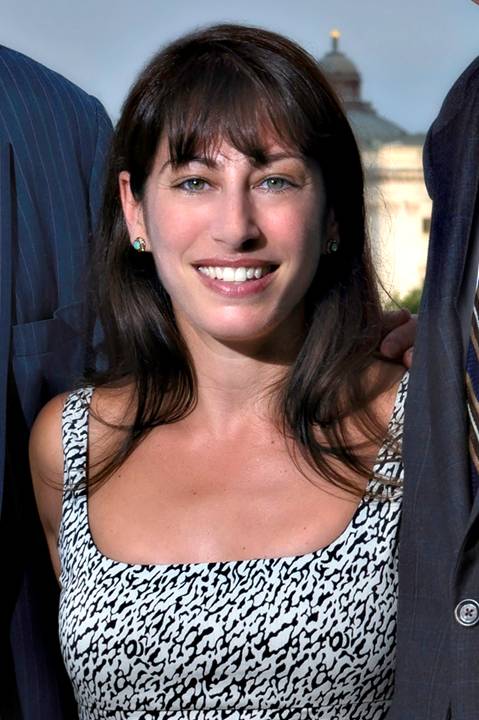
Neil deGrasse Tyson's 'Cosmos' Sets an Example for Science Educators (Op-Ed)

Carie Lemack is co-founder and CEO of DreamUp, the first company to bring space into classrooms and classrooms into space. A former national security policy expert/advocate and producer of an Academy Award-nominated film, Lemack is a proud alumna of Space Camp and a supporter of all space cadets reaching for the stars. Lemack contributed this article to Space.com's Expert Voices: Op-Ed & Insights.
The success of science depends on the ability of scientists to successfully explain their subject. It depends on the talent of professionals who can popularize science in the media, where education and entertainment can become one. Such individuals include Carl Sagan and Richard Feynman, among many others, whose enthusiasm is contagious, whose videos still attract millions of viewers and whose viewpoints still enlighten minds around the world.
Add Neil deGrasse Tyson to this list, thereby creating a trinity of physicists and astrophysicists with the ability to translate the prose of science and mathematics into poetry better suited for mass communication. Tyson is the host of the television series "Cosmos: A Spacetime Odyssey," a follow-on to Sagan's 13-part miniseries "Cosmos," which aired in 1980.
Tyson's show will return for a second season in 2019. This announcement, from Fox and the National Geographic Channel, is important for three reasons.
First, there's a high demand for such content. For all the interest in science fiction, with its stunning special effects and stories about extraterrestrial adventures in distant galaxies — stories that often rely more on fiction than actual science — there is also a substantial and complementary audience for well-told stories of scientific facts. The success of "Cosmos" suggests that the general public has an appetite for cosmology and astrophysics when those subjects are presented in a way that is accessible to people of all ages and backgrounds. [Photos from 'Cosmos: A Spacetime Odyssey' TV Series]
Second, Tyson has shown that a great teacher is a theatrical one. Just as there are equations that express the laws of physics, there is a law governing how to produce a hit TV show about the physical world: Show, don't just tell. Show us how the science works in a way that will capture our attention, using graphics and animation to illustrate the narration.
Third, Tyson shows us how to apply what he showcases. He conveys the wonders of the natural world by reveling in the pleasures of science and the process of finding things out. Therein lies the message of "Cosmos": that science can be fun — that science is fun — provided we approach it with a sense of curiosity and wonder, provided we aspire to convert our dreams into deeds of daring and discovery, provided we attempt to achieve our ambitions and never cease to dream of exceeding our expectations.
Get the Space.com Newsletter
Breaking space news, the latest updates on rocket launches, skywatching events and more!
Teachers who want to increase students' interest in space and emulate Tyson's teaching style can start by adopting a free space-focused curriculum from my company, DreamUp. When educating students about something so esoteric, it helps — it is essential — to captivate minds with captivating materials.
I look forward to watching the second season of "Cosmos," and I hope you'll join me in finding out what Tyson has to teach us next!
Follow us @Spacedotcom, Facebook and Google+. Original article on Space.com.
Join our Space Forums to keep talking space on the latest missions, night sky and more! And if you have a news tip, correction or comment, let us know at: community@space.com.










